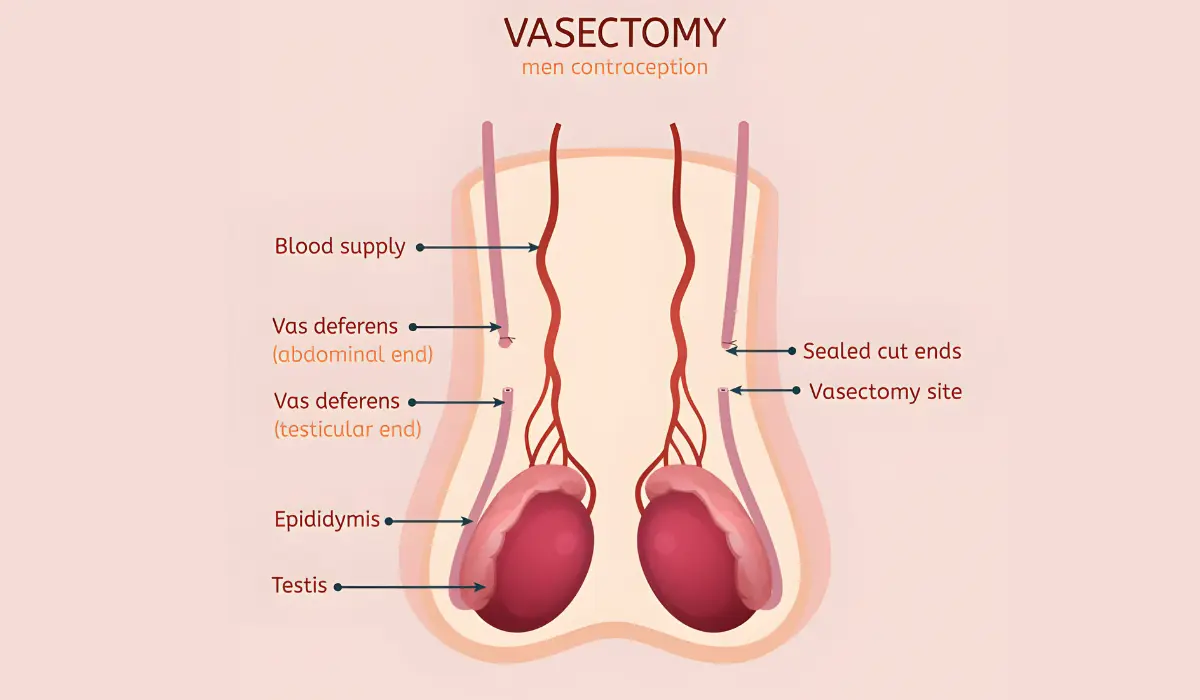After years of carefully considering permanent birth control options, I decided to get a vasectomy at age 35. My wife and I felt our family was complete with two wonderful kids, so this seemed like the logical and responsible path for us. However, I had lingering concerns over potential side effects like lowered testosterone levels.
Would a vasectomy make me less manly over time? Would it negatively impact my sex drive, performance, or vitality long-term? These were troubling questions I struggled with leading up to the procedure. Through extensive research and consultations with my doctor, I’m relieved to report my fears were unfounded. One year post-op, I’ve noticed no reduction in testosterone or change in libido whatsoever.
Negative Effects of Vasectomy

When investigating possible negative impacts, I learned vasectomies are considered extremely safe, routine procedures. The most common side effects tend to be minor swelling and discomfort lasting less than a week after surgery. The risk of serious complications, like severe infection or excessive bleeding, is extremely rare at less than 1-2%.
While some men anecdotally report increased depression, fatigue, or chronic pain after vasectomies, most reputable studies find no definitive correlation. There is also no conclusive evidence that vasectomies heighten prostate/testicular cancer risks or cause cardiovascular issues later in life. After weighing my overall great health against the remarkably low risks, I felt reassured proceeding with the vasectomy posed minimal threats.
Does a Vasectomy Increase Testosterone?
I discovered message boards filled with claims that vasectomies substantially increased men’s testosterone. The medical reasoning is that closing or severing the vas deferens tubes somehow causes sperm cells to be reabsorbed back into the bloodstream instead of exiting the body. This supposedly raises overall testosterone levels noticeably.
However, legitimate medical research flatly contradicts this bro science. No reputable studies have proven any significant increase or decrease in testosterone post-vasectomy. During my one-year checkup, a blood test confirmed my T levels were virtually unchanged.
Where Does Your Sperm Go After a Vasectomy?
Many men wonder what happens inside the body after this procedure. I know I certainly did! In short, sperm production continues in the testicles uninterrupted after a vasectomy. However, the closed-off vas deferens tubes block sperm from mixing with semen that exits the body during ejaculation. The trapped sperm cells are simply reabsorbed by the body and broken down internally.
So while the volume of fluid remains the same during sex, that liquid is now just seminal plasma without any sperm cells present. The testicles continue creating millions of sperm daily, but they are contained within the closed reproductive system instead of being externally emitted.
Does a Vasectomy Cause Cancer?
I closely examined research on any correlations between vasectomies and increased cancer rates. Fortunately, I found no convincing evidence this elective sterilization procedure promotes cancer in otherwise healthy men. A landmark 1993 study investigated over 50,000 post-vasectomy patients across multiple countries over a 15-25 year timeframe. Ultimately it found no increased risk of testicular or prostate cancer compared to the general male population. More recent data from the last decade also fails to show any positive link between vasectomies and cancer occurrences.
Vasectomy vs Tubal Ligation
When couples decide their families are complete, there are two main options for permanent sterilization: vasectomy and tubal ligation. While both procedures prevent future pregnancy, there are some key differences to consider.
A vasectomy severs or blocks the tubes that transport sperm, known as the vas deferens. It is performed on men in an outpatient setting taking approximately 15 minutes. Recovery usually requires ice and rest for 2-3 days to relieve minor discomfort.
Tubal ligation is the closure or cutting of a woman’s fallopian tubes which transport eggs. It requires general anesthesia in a hospital or surgical center and takes around 30 minutes. The recovery lasts 1-4 days involving prescription pain relief from abdominal incisions.
When comparing effectiveness, both procedures are over 99% effective at pregnancy prevention. However, vasectomies are widely considered simpler with faster recovery periods and fewer activity restrictions after surgery. The failure rate is lower for vasectomies and reversal is less complicated compared to tubal litigation procedures. Additionally, the cost tends to be significantly higher for female sterilization, ranging from 50-200% more than a vasectomy.
While personal factors matter, vasectomies tend to be less invasive, have fewer risks, and faster recovery times. Ultimately couples must weigh their options carefully when choosing permanent birth control methods.
Does a Vasectomy Affect Size?
While less discussed than cancer risks or testosterone impacts, I discovered many guys also worry about shrinkage post-operation. Some even theorized that regularly draining sperm causes the testicles and penis to gradually reduce in size without that fluid present. Once again though, I found no legitimate medical proof that vasectomies shrink a man’s anatomy long-term.
As with testosterone, reputable studies show size and performance capability remaining unaffected after healing from the initial surgery’s swelling side effects. During my follow-up exams, my doctor medically confirmed my genital measurements were perfectly aligned with pre-operation baselines. And my wife insists she observes no difference in visible size or sexual satisfaction one year later.
In closing, I’m relieved to report after 12 months that all my worries about diminished masculinity, vigor, or anatomy post-vasectomy were unfounded. I experienced no loss of testosterone, libido, or size whatsoever. So if you have similar concerns delaying permanent birth control, I hope my account here helps quell those fears. Vasectomies have worked wonderfully for me with no adverse impacts thus far!

